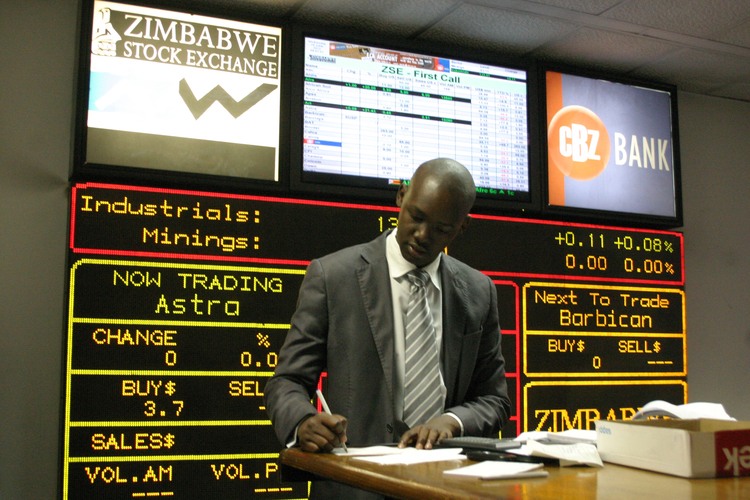
The Sunday Mail

. . . $300 million shed in 28 days
Enacy Mapakame
Business Reporter
THE Zimbabwe Stock Exchange (ZSE) is now trading two points above its re-based level in 2009 as the stock market hits a six-year low.
After the bourse resumed trading on February 19, 2009 following its closure in November 2008, the Exchange adopted the United States dollar as its primary trading currency.
Both the industrial and mining indices were re-based to 100 basis points as a result.
At its peak, the industrial index reached 232,87 points in July 2013.
But by close of trade Wednesday, the industrial index had dropped 0,45 points from the previous trading day to settle at 102,30 points.
Since beginning of the year, the mainstream industrial index has dropped 10,5 percent to 102 points from 114 points.
Similarly, the mining index has dropped 20 percent since beginning of the year from 24 points to 19 points by end of trade Wednesday, the lowest since dollarisation.
In February 2011, the mining index reached a peak at 239,08 points.
Investors have lost nearly $300 million in value since the beginning of the year with the bourse’s total market capitalisation – the value of the total shares in issue of counters listed on the stock exchange — shedding 9,6 percent to US$2,7 billion, falling the most in six years.
Market watchers fear that the mainstream industrial index might drop below the 100 basis points.
Last week, MMC Capital equities analyst, Mr Kudzanai Samudzi said there is no economic stimulus in sight to motivate an appetite for stocks.
Currently, there is a stock sell-off by foreign investors, who make up the bulk of trades on the ZSE.
“The economy is not doing well, and the stock market is following suite.
“The price fall can be expectations and anticipation of investors putting pressure on the price,” he said.
Mr Samudzi added that the prevailing liquidity constraints, low consumer spend and falling global prices are adding pressure on the equities market.
The World Economic Forum (WEF) has warned that prices of commodities may drop further this year.
Economists believe that global economic growth is being affected by the contagion effect of slowing economic growth in China, the world second-biggest economy.
Zimbabwe’s major exports are tobacco, gold, ferro-alloys, nickel, platinum, cotton lint, sugar, tea and coffee.
Economist and Zimbabwe National Chamber of Commerce (ZNCC) chief executive, Mr Takunda Mugaga contends that sluggish trades might drag the industrial index below the benchmark 100 basis points.
“The market has been going down and I think it may reach below the 100 points mark.
“Normally, economies fall to recover, what matters is the rate at which it recovers,” he said, adding that the effects of the projected drought in the 2015/16 farming season might further weigh on the market.
Poor agricultural production has a serious knock-on effect on the economy with agro-industrial counters such as Ariston, National Foods and CFI Holdings likely to feel the heat.
In the week to Wednesday, beverages maker Delta had fallen to US53c after succumbing to selling pressure.
Retail group OK Zimbabwe was also among top shakers, shedding off 1 percent to close at US3c on weak demand.
Of the five active counters in Wednesday trading (Delta, Econet, Barclays, OK and Nicoz), only Barclays traded in the positive; gaining 1,3 percent to settle at US3,9c.



